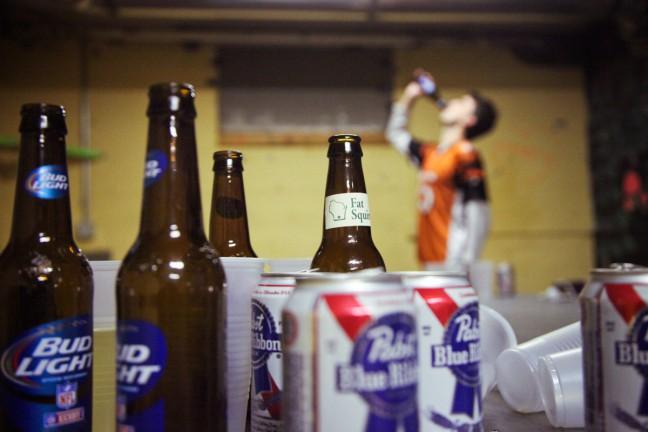Nineteen could be the new 21 if the University of Wisconsin’s student government opts to work for legislation to lower the state’s legal drinking age.
If such a bill were signed into law, students would be able to obtain a permit to legally consume and purchase alcohol at age 19 by declaring residency in Wisconsin, holding a Wisconsin driver’s license, or proving their enrollment at a state school, Associated Students of Madison campaign coordinator Madison Laning said. There is currently no legislation drafted to lower the state drinking age.
Laning said this is the first time since 1995 ASM has weighed advocating in favor of legislation on the drinking age, although they have sponsored other bills on responsible drinking.
Last week, legislators passed a bill that gives bars and taverns the right to file civil lawsuits with a $1,000 fine against underage persons in their establishments.
Drinking in Wisconsin has always been a major issue, especially on campus, Laning said. ASM’s Legislative Affairs committee decided to work on this bill in order to make it more publicly and socially acceptable to drink in public, she said.
The majority of drinking on campus is done “secretively” because of drinking laws, which creates a potentially harmful atmosphere, Laning said.
In response to this trend, Wisconsin legislators and school administrators are also pushing for a Responsible Action Bill that would give students immunity from criminal charges for calling the police or first responders for another intoxicated person.
However, if 19-year-old students could legally drink, they could go to bars and restaurants and consume alcohol in a safe space without having to hide it, Laning said, adding she believes such as bill could help make UW a safer campus.
If the drinking age is lowered, the alcohol permit also has the economic potential to compensate for most of the decrease in federal funding for highways, ASM spokesperson Grace Bolt said.
The federal government currently retracts 5 percent of the funding in the first year and 10 percent every year after. Purchasing permits has the economic potential to compensate for most of the decrease in funding, and the revenue could go toward highway construction, she said.
ASM is currently meeting with legislators to discuss the effects of the bill along with the loss in highway funding, Laning said. There is still a lot of research that needs to be done, she added, and ASM recently sent out an all-campus student survey to see if there was any support for the legislation.
The student survey will also help ASM compile statistics on whether students would be willing to buy a permit in order to show lawmakers people are in favor of the permits and that it would generate revenue, Laning said.
ASM representatives will contact UW administrators once they have determined students’ interest in the bill, Laning said. ASM has already spoken with one legislator to discuss why the legal drinking age was changed to 21 in 1985, but have not yet contacted any other legislators to author or support the bill, she said.


